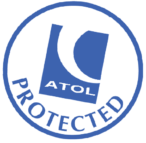Capital: Damascus
Time zone: GMT + 2 (GMT + 3 during the summer)
Telephone services: Country Code: 963 Outgoing Code: 00
Emergency telephone numbers: Contact hotel operator
Tourist information: Ministry of Tourism, rue Victoria, Damascus, Syria Tel: (11) 223 7940 Fax: (11) 224 2636
Passport information: Valid passport required by all except nationals of Lebanon holding valid ID cards. Requirements may be subject to short-term change. Contact the relevant authority before departure.
Visa information: Visa required by all except nationals of Algeria, Bahrain, Egypt, Jordan, Kuwait, Lebanon, Libya, Mauritania,Morocco, Oman, Qatar, Saudi Arabia; Somalia, Sudan, Tunisia, United Arab Emirates and Yemen.
Health information: Malaria: Exists in the vivax variety in tiny pockets of the Northern border areas between May and October.
Yellow Fever: A vaccination certificate is required from passengers arriving from infected areas
Other Health Risks: Bilharzia, Visceral leishmaniasis and Hepatitis A and B occur.
Food & drink: Water is untreated and not safe to drink. Avoid dairy products as they are not pasteurised. Fruit and vegetables should be peeled before consumption.
Currency: Syrian Pound (S£) = 100 piastres NOTE: The export of local currency is prohibited
Amex and Diners Club are the most commonly accepted. Some hotels accept MasterCard and Visa. Travellers cheques are accepted but can not always be exchangeable at Damascus airport.
ATM availability: Unavailable.
Cost of living: Can be expensive in the high season, especially in Damascus. Savings can be made by purchasing local food from the markets.
Languages: Arabic. French and English may also be spoken.
Weather: Summers are hot and dry whilst nights are often cool. Winter is cold.
Electricity: 220 volts AC, 50 Hz
Post: Airmail to Western Europe takes up to 1 week. Parcels sent from Syria should be packed at the post office.
Transport: ROAD: Well over half the roads are tarred. Those that aren’t are unsuitable for the wet season. BUS: There are orange and white air-conditioned buses which serve terminals in city centres. Seats must be booked in advance. TAXIS: Shared taxis operate and are available to all parts of the country. DOCUMENTATION: IDP is required. Insurance is required by law and a customs certificate is needed.
Special information: Because of the situation of global and regional insecurity at present, travellers should exercise extreme
caution and make only necessary journeys to this country. If you intend to travel depite this advice you should be aware that Syria has been one of the safest places to travel in, but visitors should keep in touch with developments in the Middle East. Most people are friendly and hospitable. It is illegal to change money on the streets. Beach-wear should not be worn away from the pool or beach. Conservative casual clothes are suitable. PHOTOGRAPHY: Ensure you do not photograph anything connected with the military.

